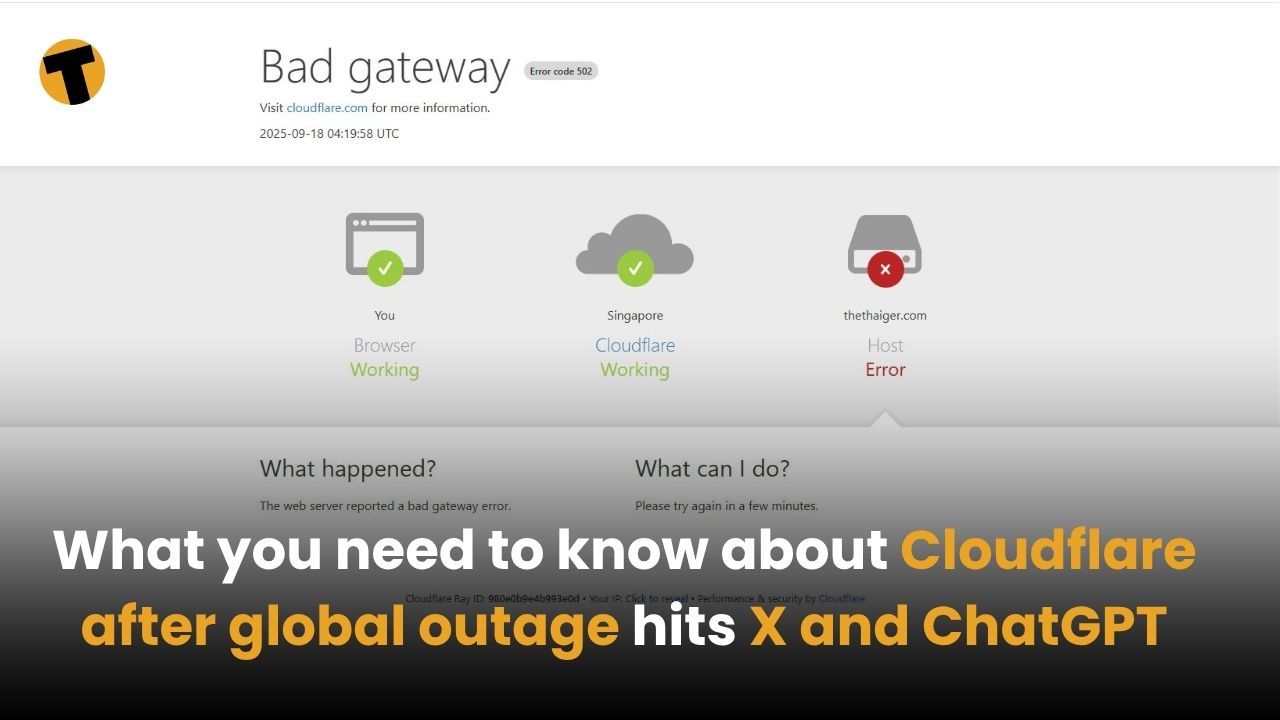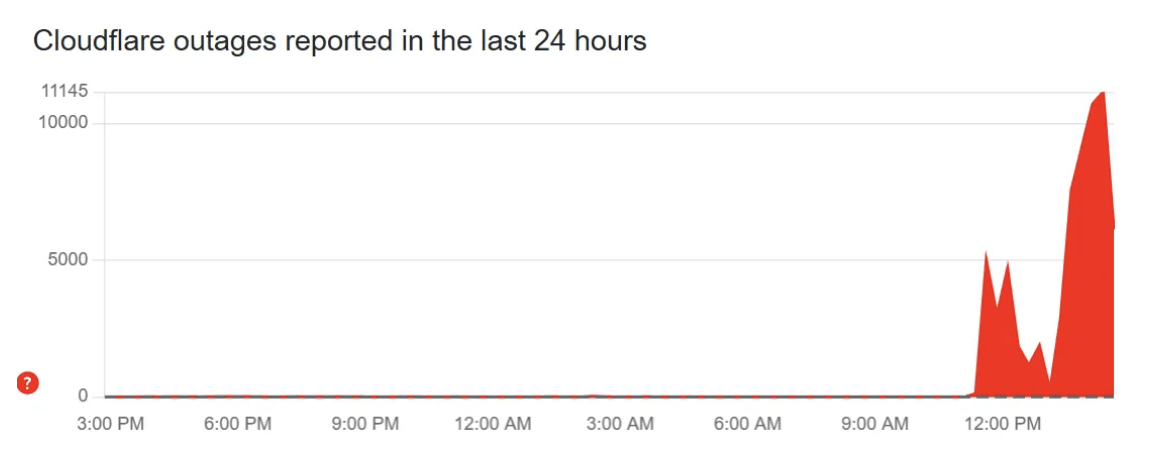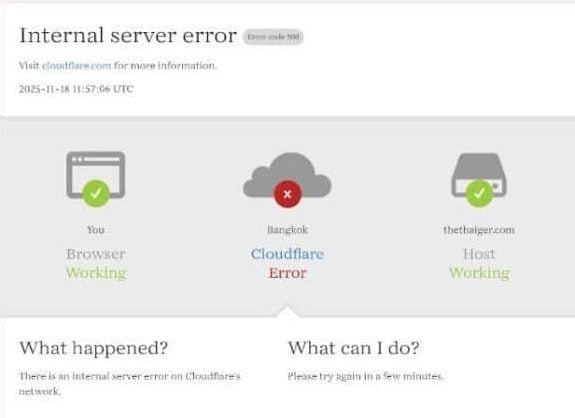What you need to know about Cloudflare after global outage hits X and ChatGPT
A quick look at the global disruption, the cause, and why it affected major platforms

Cloudflare, one of the world’s largest internet infrastructure providers, went down for several hours and caused major websites, including X (Twitter) and ChatGPT, to become inaccessible worldwide. The incident has now been resolved, with the company confirming the issue was caused by an oversized system file – not a cyberattack.
Last night, on November 18, internet users across multiple countries reported widespread disruptions when trying to access major websites and online services. Platforms such as X and ChatGPT were unavailable for hours, along with other popular sites.
The outage stemmed from a technical failure inside Cloudflare, a global internet infrastructure company that acts as a backbone for website speed, security, and traffic management. When Cloudflare experiences problems, it often affects millions of users at once.
Reports of trouble began in the evening, when users found themselves unable to access X (Twitter), ChatGPT, the film-review platform Letterboxd, and even DownDetector – the website used to check if other platforms are down.
Cloudflare later confirmed the issue at around 8pm, stating that engineers were investigating a widespread Error 500 that was impacting a large number of clients.

Not caused by a cyberattack
Early speculation suggested the outage might be linked to a cyberattack or scheduled maintenance at a data centre in Santiago. However, Cloudflare issued an official explanation after resolving the issue.
According to the company, the failure was caused by an automatically generated configuration file designed to help manage security threats. The file grew far larger than expected, causing the software responsible for handling internet traffic to crash.
“For clarity, there is no evidence that this outage was caused by an attack or any malicious activity.”
After hours of work, Cloudflare announced that the issue had been fully resolved at around 14.30 UTC, and systems had returned to normal.
The company apologised to customers and users worldwide, saying…
“Any outage is unacceptable. We are sorry for the disruption caused today, and we will learn from this incident to improve further.”

What is Cloudflare?
Cloudflare can be compared to a gatekeeper or distribution hub located at the entrance of a busy neighbourhood. Before anyone reaches the actual website, they pass through Cloudflare first.
It stands between the user and the server and handles two main functions:
1. Making websites faster
If a website’s server is located in the US, visiting it from Thailand would normally take longer. Cloudflare speeds this up by storing cached versions of website content on servers around the world, including in Thailand. When a user clicks on the site, the data loads from the nearest Cloudflare server instead of travelling across the globe.
2. Protecting websites from attacks
The internet is full of bots and hackers that launch DDoS attacks by flooding websites with fake traffic. Cloudflare acts as a security guard, screening every visitor. Real users are allowed through, while bots or suspicious traffic are blocked before they can reach the actual server.
Why do so many websites use it?
Around 20% of all websites globally rely on Cloudflare’s services. The primary reason is that Cloudflare provides high-quality protection and faster performance, even with its free plan. This makes it attractive for everyone from small bloggers to major tech companies, helping reduce data costs and prevent outages with only a few minutes of setup.
A double-edged sword: when the hero becomes a single point of failure
Cloudflare’s popularity creates a phenomenon known as centralisation. With such a large portion of the internet depending on one company, any internal failure, such as last night’s configuration error, can have widespread consequences.
Even though platforms like X and ChatGPT were technically running normally, users were unable to reach them because Cloudflare’s gateway malfunctioned. This resulted in the mass outage seen worldwide.
In short, Cloudflare is a crucial utility that keeps the modern internet fast and secure. But last night’s disruption does remind us that depending heavily on a single tech giant can also carry risks.
The Thaiger key summary
- A Cloudflare system file grew too large, crashing traffic-handling software.
- The outage affected major platforms worldwide but was not a cyberattack.
- Heavy reliance on Cloudflare shows how centralised systems can create widespread disruptions
Latest Thailand News
Follow The Thaiger on Google News:


























